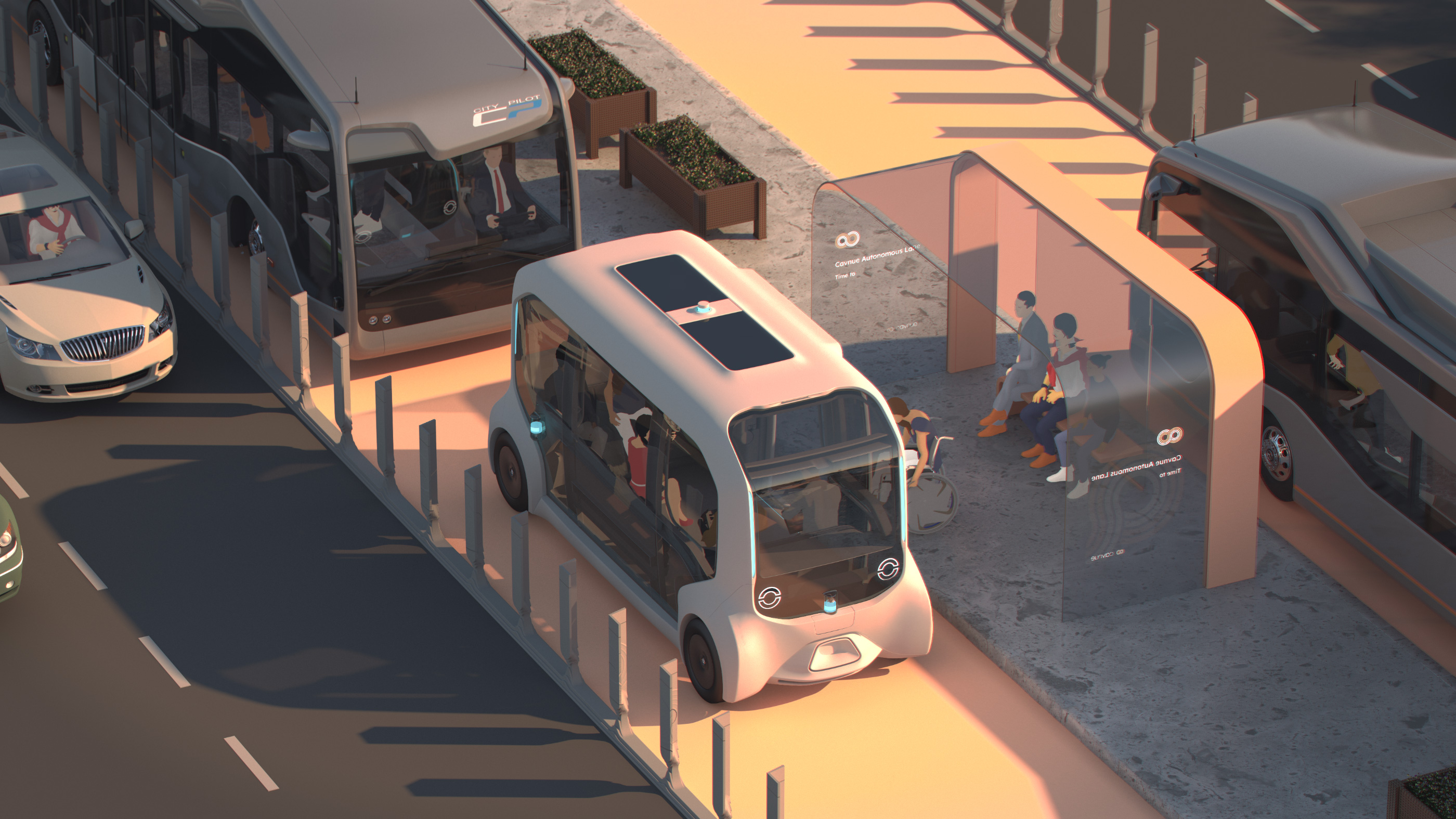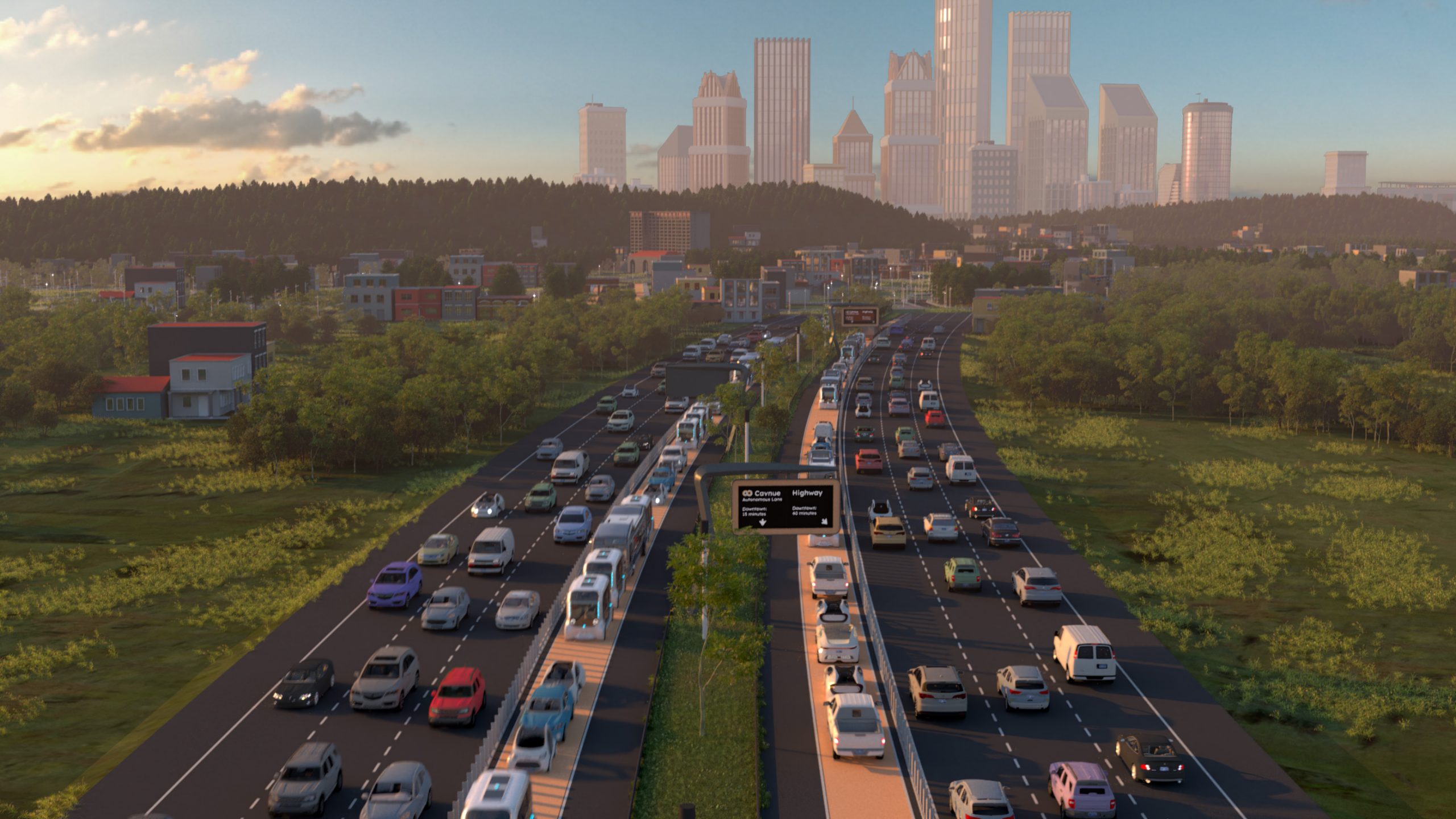A 40-mile-long corridor reserved for autonomous vehicles may soon connect Detroit and Ann Arbor. Last Thursday, on August 13, Michigan Governor Gretchen Whitmer announced the creation of the Connected and Autonomous Vehicle Corridor, which will be established through a public-private partnership.
Mobility company Cavnue has been selected as the project’s Master Developer, and will help realize the corridor along with the Michigan Department of Transportation (MDOT), the Michigan Office of Future Mobility and Electrification, the Michigan Economic Development Corporation, and the Michigan Department of Labor and Economic Opportunity (LEO). Cavnue is a subsidiary of the “innovative infrastructure”-based Sidewalk Infrastructure Partners (SIP), which, unsurprisingly, is related to the Alphabet-owned Sidewalk Labs; whereas Sidewalk Labs was interested in building smart cities, SIP is all about connecting them, and spun off from Labs.
“The action we’re taking today is good for our families, our businesses, and our economy as a whole,” said Whitmer in the announcement. “Here in Michigan, the state that put the world on wheels, we are taking the initial steps to build the infrastructure to help us test and deploy the cars of the future.”
Cavnue will help plan, design, and construct the corridor with help from state and local partners; the corridor will connect to a number of smaller towns between the two Southern Michigan cities. Besides hitting a number of major departure and drop off points (including the University of Michigan, Detroit Metropolitan Airport, and Michigan Central Station), the corridor will link up with a number of “opportunity zones” in those aforementioned smaller destinations for easy access.
In an attempt to future-proof the corridor, as Governor Whitmer explained, autonomous cars, public transportation (Cavnue has a suite of renderings of its Boring Company-esque bus pods on its website), and eventually autonomous freight traffic will eventually all use the route.

Phase one of the project will take place over the next two years and will explore the project’s feasibility on both the technology and financing fronts. After that, the actual design and construction phases will take place, though no timetables have been given yet. Cavnue will also be responsible for developing or acquiring the equipment required for both the vehicles and the roadway, as well as navigating the permitting process.
Top image: If completed as proposed, the Connected and Autonomous Vehicle Corridor would connect Detroit and Ann Arbor. (Source: Cavnue)
